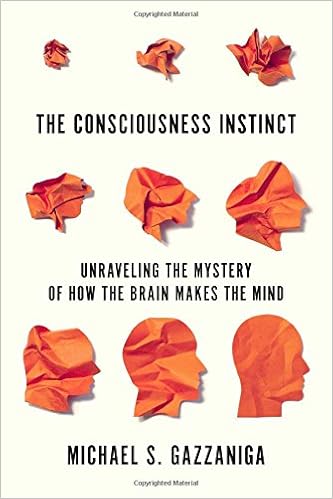Readers are fans of writers in the same way sports enthusiasts are fans of teams (many of use are both). This reader is a fan of those who explain the world and bring fresh explanations and creative insights to human experience and understanding. Michael Gazzaniga is one such author and my shelf has many of his books, including his 2018 The Consciousness Instinct.
In the book, the noted neuroscientist tackles the consciousness problem with fresh explanations and creative insights. The problem is familiar to those who have studied philosophy and it arises from the fact that neither science nor philosophy (not any other field) has answered the question “what is consciousness?” in a satisfactory manner. Gazzaniga begins the book with a review of the answers proposed by the Descartes and others who are traditionally cited as having contributed to the field. The story continues with the contributions of the first anatomists who first started observing (dissected) human bodies.
Gazzaniga brings the story into the 21st century and introduces the idea that consciousness is an emergent property of life (not just humans). Evidence is drawn from Gazzaniga’s expert selection and description of recent studies in brain research. The evidence seems clear that consciousness does not originate in the cortex (the region most associated with human cognition) and consciousness remains after the cortex is damaged by disease or accident.
Traditionally, consciousness has been interpreted as an “either/or problem;” it is either the result of materialistic processes or is something uniquely human. Gazzaniga suggests it is both. He likens this new interpretation to the re-conceptualization of nature that arose from physics in the 20th century. Just as light was re-conceptualized as wave and particle, consciousness needs to be re-conceptualized as well.
Some find compromises to be contemptible. Those who compromise are seen as taking the “easy way out.” Science is about describing what we observe in the world. We hope to explain and predict with our descriptions. We believe that science is a data-driven endeavor. We update our ideas based on data. Gazzaniga helps us understand that it is the interpretation of data that ultimately leads to understanding in science, and by extension in every other field of human thought and work.

Gazzaniga, M. S. (2018). The consciousness instinct: Unraveling the mystery of how the brain makes the mind. Farrar, Straus and Giroux.